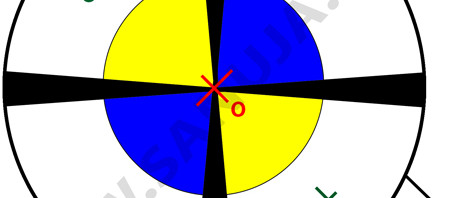The information posted here is not in a particular order. If you want to find something specific on this page, I suggest using page text finder on your computer (Ctrl + F). Important terms and information are in bold. For additional photographs and information, please visit the following pages:
– Mineralogy Media Library
– Photomicrographs of Minerals
– Petrology Media Library (Igneous and Metamorphic)
Tag Archives: academic
Non-skeletal Constituents-Carbonate Petrology
Coated grains
Ooids
– Size: 0.25 mm to 2 mm diameter
– Identification: clear nucleus or site of the nucleus. Several (not always) concentric cortical layers. Cortical layers are continuous (no overlapping). Generally larger than peloids but much smaller than oncoids. When the stage is rotated under XPL, they will undergo pseudo-uniaxial cross type extinction.
– Microfabric: tangential, radial and/or random crystals in each cortical layer.
– Rocks that predominantly made of ooids known as oolite. Continue reading Non-skeletal Constituents-Carbonate Petrology
Skeletal Microstructures-Carbonate Petrology
Homogeneous Prismatic
– Size: 1 um wide and 5 – 20 um long.
– Use high power magnification in petrographic microscope.
– Identification: sweeping extinction. Microgranular: Dark coloured in ppl. Opaque in reflected light. Porcelaneous: dark or amber in ppl. Shiny white in xpl. Hyaline: speckled colours in xpl.
– Primary characteristic of foraminifera, molluscs (bivalve).
– Secondary characteristic of trilobites, ostracodes.
Continue reading Skeletal Microstructures-Carbonate Petrology
Petrology Media Library
The information posted here is not in a particular order. If you want to find something specific on this page, I suggest using page text finder on your computer (Ctrl + F). Important terms and information are in bold. For additional photographs and information, please visit the following pages: Continue reading Petrology Media Library
Interference Figures
Introduction
Interference figures or some text may refer to as optical figures are used by mineralogists and other scientists to describe optical properties of crystals. In Geology, optical properties of naturally occurring crystals are used to identify and classify minerals. In addition some companies are interested in manufacturing economically valuable minerals such as synthetic diamonds have a growing interest on the behaviors of these figures.


